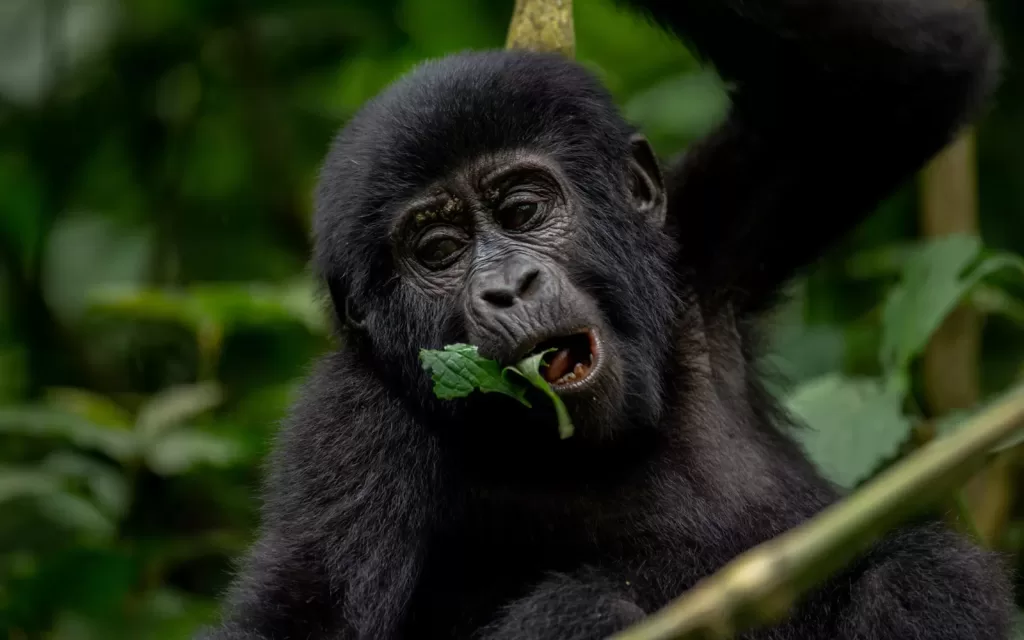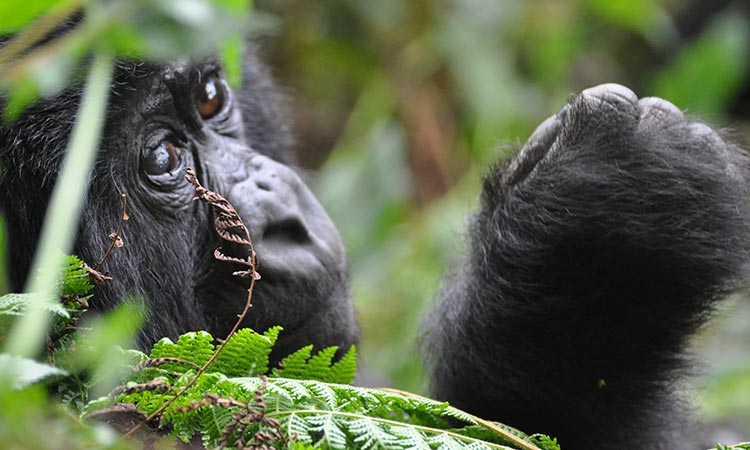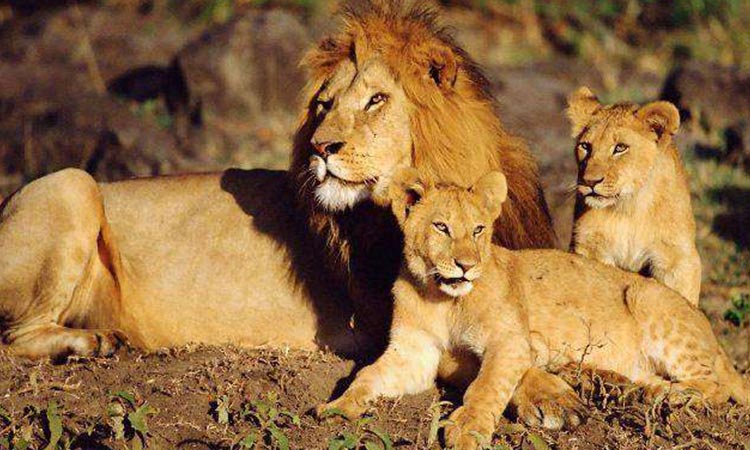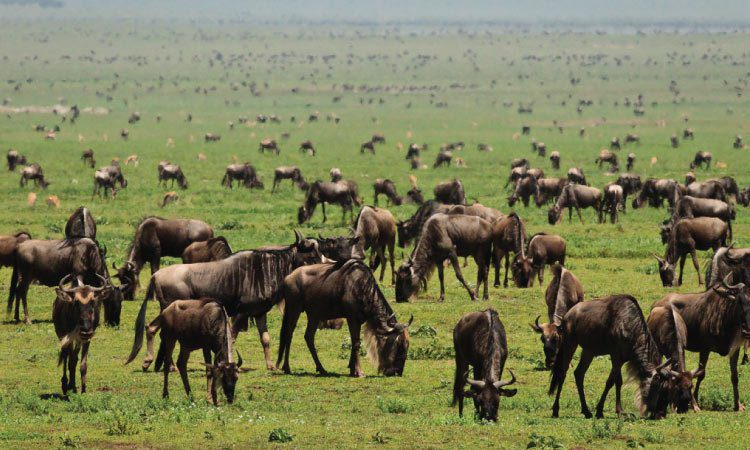East Africa Travel Information
East Africa Travel Information
East Africa Travel Information.
1. How do you get to and around East Africa?
Getting to East Africa is by Air, Road, and Water. Below are the main entry points by air.
Uganda – Entebbe International Airport
Rwanda – Kigali International Airport and Kamembe International Airport.
Kenya – Jomo Kenyatta International Airport and Mombasa Moi International Airport.
Tanzania – Kilimanjaro International Airport, Julius Nyerere International Airport, and Zanzibar Abeid Amani Karume International Airport.
Major airlines – Air Kenya, Air Tanzania, Uganda Airlines, Rwandair, Kenya Airways, Zan Air Coastal Aviation, and Precision Airways.
International Airlines: Many international airlines fly directly within East Africa. These are Uganda Airlines, Turkish Airlines, Ethiopian Airlines, Qatar Airways, Kenya Airways, SN Brussels Fly Dubai, South African Airways, Rwanda Air, SA Link, Egypt Air, Delta Airlines, Emirates, and KLM Royal Dutch Airline.
Most major towns have an airstrip as do most National Parks and Game Reserves. There are scheduled flights between most airstrips as well as charter operations.
Looking for cheap flight tickets to/out of East Africa? Contact travel consultants right away.
-
What are the visa requirements for East African Countries?
Visa Uganda:
Uganda Single entry visas cost USD 50 per person valid for 90 days. A valid passport for at least 6 months and a visa are required for all travelers. Tourist visa applications are applied online through the E-Visa Website.
The immigration authorities will email you a You print out the letter to present on arrival, where the officials will issue your visa. Carry a copy of your letter of authorization including a barcode and present it to the officials who will issue your visa on arrival. You must carry your yellow fever vaccination certificate as well.
Only passengers with valid tickets and airport officials are allowed into Entebbe International Airport’s terminal building.
Browse through the Uganda Safari Experiences and contact us for the Uganda Safari special offer for 2024.
Visa Rwanda:
Rwanda single entry visa costs USD 30 per person valid for 30 days. A valid passport for at least 6 months and a visa are required for all travelers.
Visas are applied online copy of the approved application at the entry point is needed. The visa will then be issued and paid for online or upon arrival.
Applications can be submitted at the Rwanda Diplomatic Missions of the country of residence.
A yellow fever vaccination is required if traveling from a country with a risk of Yellow Fever Virus transmission.
Browse through the Rwanda Safari Experiences.
Kenya
| Capital | Nairobi |
| Official Languages | Kiswahili, English |
| Population | 51.4 M (2023) |
| Currency | Kenyan Shilling (Ksh) |
| Time Zone | EAT (UTC +3) |
| Traffic Drives | Left Side |
| Dialling Code | +254 |
Rwanda
| Capital | Kigali |
| Official Languages | Kinyarwanda, French, English |
| Population | 12.3 M (2023) |
| Currency | Rwandan Frank (RWF) |
| Time Zone | CAT (UTC +2) |
| Traffic Drives | Right Side |
| Dialling Code | +250 |
Uganda
| Capital | Kampala |
| Official Language | English, Swahili |
| Population | 42.7 M (2014 Census) |
| Currency | Uganda Shillings (Ush.) |
| Time Zone | EAT (UTC +3) |
| Traffic Drives | Left Side |
| Dialling Code | +256 |
Tanzania
| Capital | Dodoma |
| Largest City | Dar es Salam |
| Official Languages | Kiswahili, English |
| Population | 56.3M (2014) |
| Currency | Tanzanian Shilling (TZS) |
| Time Zone | EAT (UTC +3) |
| Traffic Drives | Left Side |
| Dialling Code | +255 |
Visa Kenya:
Following the Kenya Gazette Supplement No. 1 dated 2nd January 2024 on Kenyan Citizenship and Immigration. You must apply online for electronic travel authorization in advance of travel. The local authorities recommend applying at least 2 weeks before your departure. Travelers who currently hold a visa can continue to travel using their visa until it expires.
Travelers with already paid and issued visas will continue to use them for entry until the expiry of their validity.
A valid passport for at least 6 months and a visa are required for all travelers. You should have at least two blank pages in your passport on arrival. Browse through our Travel Inspiration for Kenya.
Visa Tanzania:
Tanzania single entry visa costs USD 50 per person. A valid passport for at least 6 months and a visa is required for all travelers. Visa applications can be submitted and approved online in advance of travel.
A Yellow Fever Vaccination Card is required for entrance into Tanzania. Browse through the travel inspiration section for Tanzania.
East African Tourist Visa – East Africa Travel Information
Suppose you are traveling within East Africa to Uganda, Rwanda, and Kenya. It is recommended to request the East African Tourist Visa. This special East Africa tourist visa costs USD 100 per person. It is valid for 90 days for multiple entries to Uganda, Rwanda, and Kenya.
How to Get the East African Tourist Visa:
Applications for the East Africa Tourist visa are at any diplomatic representatives of the Republic of Kenya, the Republic of Rwanda, and the Republic of Uganda.
At the Immigration Offices of the respective countries or online where applicable.
- Uganda: All travelers must apply for visas online https://visas.immigration.go.ug
- Kenya: All travelers must apply for their electronic travel authorization via the portal https://etakenya.go.ke/en
- Rwanda: online via the Rwanda Immigration website.
- Tanzania on the Tanzania immigration website
3: East Africa Travel Information – What health issues should I be aware of?
We do value the health of our customers at all times. Please ensure that you have protection against, Malaria, Measles, Tetanus, Typhoid, Hepatitis A and B, Tuberculosis, Polio, Cholera, and Yellow fever.
You must travel with your Yellow Fever vaccination card. Check the latest requirements with your travel clinic or doctor before departure.
Our East Africa Travel Information recommends at least 8 weeks before your trip, check the latest country-specific health advice on the TravelHealthPro website.
4. What about Travel Insurance on tour?
It is a condition of booking with us that you have adequate valid travel insurance. It is your responsibility to arrange appropriate travel insurance and ensure you have read and understood the full terms and conditions of your travel insurance policy.
Check that the policy covers all activities you intend to undertake whilst on the tour, including all optional activities. Your Insurance Policy must cover your medical expenses and emergency repatriation to your home country.
Let us know if you need help booking travel insurance.
5. Flight information
Travelers Link Africa offers a wide range of flexible flying options to make joining and leaving our trips easy. Get help via Affordable flight tickets.
You may book your tour as a land-only or flight-inclusive package. Let our dedicated flight team know if you need help with the best flight options.
We recommend booking as early as possible, especially during the peak season’s travel dates. Our East Africa Travel Information recommends a browse through our special offer tour package.
6. When to travel to East Africa?
Travel Seasons for the East Africa Travel Information.
Dry Season – July to October. Game spotting is easy due to less vegetation cover. Animals are around water holes and water bodies in the national parks.
High Season June – August
Game spotting is easier, Less Vegetation Cover, and animals are around water sources.
Wet Season March to May. Longer rain patterns and wildlife might be sparse and game tracks impassable
October and November have short rains that rarely disrupt safari plans.
Green Season September – February. Short rains in October and November, Greener Landscapes for photography.
Low season March-May. There are heavy rains that may disrupt safari plans and fewer travelers. Make use of the low-season discounts offered on travel packages.
7. What to wear?
There is no particular dress code in East Africa and most people are Casual dressers. It tends to get hot, cold, and rainy depending on the seasons.
We recommend casual summer clothes that are easy to launder and quick to dry. Go for neutral colors that do not reflect the heat and do not show the inevitable safari dust.
Pack Shorts, long pants with a zipper pocket, t-shirts, flip flops, a hat, a rain jacket, as well as sturdy shoes. Long-sleeved shirts and a sweatshirt or fleece are ideal for evenings.
Laundry service is available in most safari lodges and tented camps if needed.
8. Money and currency East Africa Travel Information.
Before embarking on your journey, make sure to notify your credit card providers about your travel plans. This precaution will minimize the risk of your vacation expenses being flagged by the credit card company.
In major towns or cities, ATMs are readily available. However, it’s important to acknowledge that sometimes ATMs may be unreliable due to limited withdrawal amounts.
Credit cards are widely accepted in Uganda, Kenya, Tanzania, and Rwanda. VISA and MasterCard are commonly welcomed at major hotels and restaurants.
On the other hand, AMEX and other cards are not recommended, as establishments typically do not support them. Keep in mind that a 5% surcharge is applied to credit card usage.
While on safari, it’s advisable to use local currencies. Capital cities and main towns boast numerous forex bureaus and banks for currency exchange. Note that smaller denominations than US$100 may result in a less favorable exchange rate. Additionally, establishments may not accept notes older than 2010.
Exchanging Money /Forex exchange
Forex Bureaus operate in major urban centers, adhering to typical banking schedules, open Monday through Friday from 08:30 to 16:00, and on Saturdays from 09:00 to 12:00.
It’s important to note that banks and forex bureaus typically require a purchase receipt and passport to verify ownership.
9. Booking Terms and Conditions
To secure your booking for the tour, a deposit of 30% of the total price is required. The remaining balance must be settled three weeks prior to the tour’s departure date.
For bookings made within three weeks of the departure date, full payment is necessary. Payments can be facilitated through bank transfer to our Stanbic Bank account. Alternatively, debit or credit card payments are accepted through the PesaPal online portal.
When submitting your payment online through our website link, please note that the PesaPal Surcharge Service will incur an additional cost of 3.5%.
We advise against relying solely on ATMs for safari payments due to potential network failures and card rejection issues. Moreover, card transactions may be subject to limitations, resulting in delays during the payment process.
10. East Africa Travel Information – Cancellation and Refund Policy
- 70 or more days before the trip: the return of the deposit, less $30 for office fees.
- Cancellation 69-50 days before departure: Loss of entire deposit.
- Cancellation 49-31 days before departure: 50% of the cost of services booked.
- Cancellation 30-15 days before departure: 60% of the cost of services booked.
- Cancellation less than 14 days before departure: 90% of the cost of services booked.
- Cancellation 7 days before departure: 100% of the cost of services booked.
- No refunds for partly used services or no-shows.
-
Gorilla and Chimp permit terms and conditions
Gorilla permits are USD 800 & chimp permits are USD 250. The Uganda Wildlife Authority has the below cancellation guidelines:
Cancellations received on full payment:
- More than 90 days before the tracking date, a 25% cancellation fee
- 89 to 46 days before the tracking date, a 50% cancellation fee
- 45 to 9 days before the tracking date, a 75% cancellation fee
- 8 to 0 days before the tracking date, a 100% cancellation fee
Important: The minimum age required for gorilla tracking is 15 years whereas for the chimps the minimum age required is 12 years. In case of flu or any other airborne disease, the visitor will be not allowed to meet with the gorillas or the chimps.
11. Tell me about accommodation and meals.
During your itinerary design, we always advise on accommodation based on your requested price range.
We aim for comfort, cleanliness, safety, and a good location. Accommodation ranges from standard, midrange, luxury, and high-end accommodations.
-
Rooming and Single Room Supplements (SRS)
Many rooms are equipped with twin beds, even when booked for single occupancy. Booking a single room usually incurs an additional fee ( Single Room Supplement).
However, family-friendly accommodations are limited in most places. Occasionally, arrangements for triple rooms can be made. These triple rooms typically consist of a twin-bedded room with an additional bed, known as an Extra Bed Supplement.
-
Meals and drinks
During your safari, all meals are inclusive, covering breakfast, lunch, and dinner. Your accommodation or en route will provide these meals. Packed or picnic lunches are provided during full-day and long-day game viewing drives.
The cuisine offered in East African game lodges and camps is a blend of international and local flavors, featuring fresh meats, vegetables, and fruits sourced daily from nearby farmland areas.
Special dietary requirements can be accommodated by the respective accommodations.
Accommodations within or near national parks typically offer inclusive meal rates (Full Board), with the option to request bed and breakfast. Children between 2 and 12 years old usually receive a 50% discount on the adult rate, though this is subject to change.
For safety, avoid drinking tap water directly. Complimentary bottled drinking water is provided in the safari vehicle. Additionally, your private safari car is equipped with a cooling unit, and you have the option to purchase soft drinks, beer, and other bottled beverages. Tea or coffee may also be served after meals.
It is advised to refrain from purchasing street food from vendors. Occasionally, fresh fruits such as bananas, pineapples, and mangoes are provided (ensure to wash before consumption). Remember to wash your hands before eating or use hand sanitizer for hygiene.
12. Internet Access
Most accommodations have WIFI in their main areas, especially reception/lounge areas. At times it becomes unstable and limited to particular times.
If you must have internet during your travels, consider getting a MiFi from the main mobile providers.
13: Do I have to tip for services?
Tipping plays a crucial role in the safari experience, reflecting satisfaction with the service provided. The tip amount is determined by how you assess the quality of the service received.
Gratuities are customary for both driver guides and hotel/lodge staff, typically ranging from USD 10 to USD 15 per day per group.
While it’s advisable to hand your tips directly to the staff, many lodges/hotels have a communal tip box that is distributed among all staff members.
14: Can I use my mobile phone?
In numerous lodging options, you’ll find outlets for charging your mobile devices within your tent or room. Alternatively, if such provisions are lacking, you can typically locate sockets in the main lounge or dining area.
A useful strategy for venturing off the conventional path while traveling is to activate ‘airplane mode’ or ‘flight mode’ to conserve battery life. Constantly seeking a signal can significantly deplete your phone’s battery.
Consider temporarily disabling apps that heavily rely on satellite data to extend your device’s battery life further.
15: East Africa Travel Information – What should I pack for the safari?
Ensure that all essential items and information, including your passport, visa, airfare, insurance, credit cards, money, and any necessary prescriptions, are kept in your hand luggage.
When packing, opt for fabric bags or waterproof materials instead of plastic bags.
Remember to include a first aid kit, although our vehicles are equipped with them.
Bring binoculars, a camera with extra batteries, rain gear, sturdy hiking boots, sunglasses, sunscreen, a hat, and a waterproof rucksack.
Don’t forget mosquito/insect repellent, hand, and toilet tissue paper, a power adaptor with at least 2 sockets for charging devices, a small flashlight with extra batteries, and, for trekking or walking safaris, lightweight, long-sleeved shirts and trousers, along with long socks.
East Africa awaits you! You are all most welcome.
WELCOME TO EAST AFRICA! A LAND GIFTED BY NATURE!
Our East Africa Safari Destinations
East Africa Safari Destinations: From grand breathtaking scenes to historic sights, dusty plains to snowy peaks, savannah grass planes to misty jungles, cosmopolitan high rises to stunning sunrise; we take you to the finest sights, destinations, and adventures Africa has to offer.
Immerse yourself in East Africa Safari Destinations for a truly authentic local experience on one of our popular guided community tours which are a great choice for single travellers too, make a date with the gentle giants of the mountain jungles, and the mountain gorillas, and follow the wild’s famous animal migration, the wildebeests in Kenya, take an unforgettable family adventure or tailor-make that dream Africa Safari Holiday.
Our East Africa Safari Destinations span around East African countries including; Uganda Safaris, Rwanda Safaris, Kenya Safaris, and Tanzania Now that East African countries have one travel visa and some of the top wild attractions like the mountain gorillas in Uganda and Rwanda, East Africa is now considered number one destination by adventure seekers.
ABOUT TRAVELERS LINK AFRICA
Our mission at Travelers Link Africa is to connect people to positive travel experiences enabling them to see the world differently, transforming lives and the communities visited.
To do this we offer authentic travel experiences taking you on both an outer adventure and an inner journey to create memories of a lifetime with Uganda, Kenya, Tanzania, and Rwanda
CONNECT WITH US
We’re here to help, so get in touch with our friendly travel consultants to book your package or add customizations your safari




